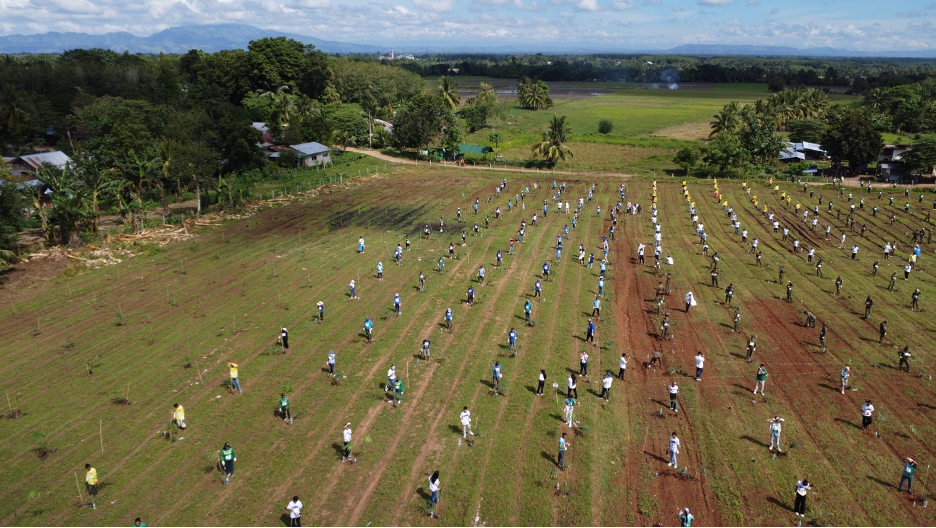Through the collaborative efforts of the Kilambay Plantation Corporation (KPC) and the Department of Science and Technology (DOST), the Philippines has earned a Guinness World Record (GWR) for the “Most People Planting Bamboo Simultaneously Across Multiple Venues.”
This milestone, thanks to a groundbreaking environmental initiative held last October 18, 2024, was officially announced during the National Science, Technology, and Innovation Week (NSTW) celebration at Limketkai Center, Cagayan de Oro City.
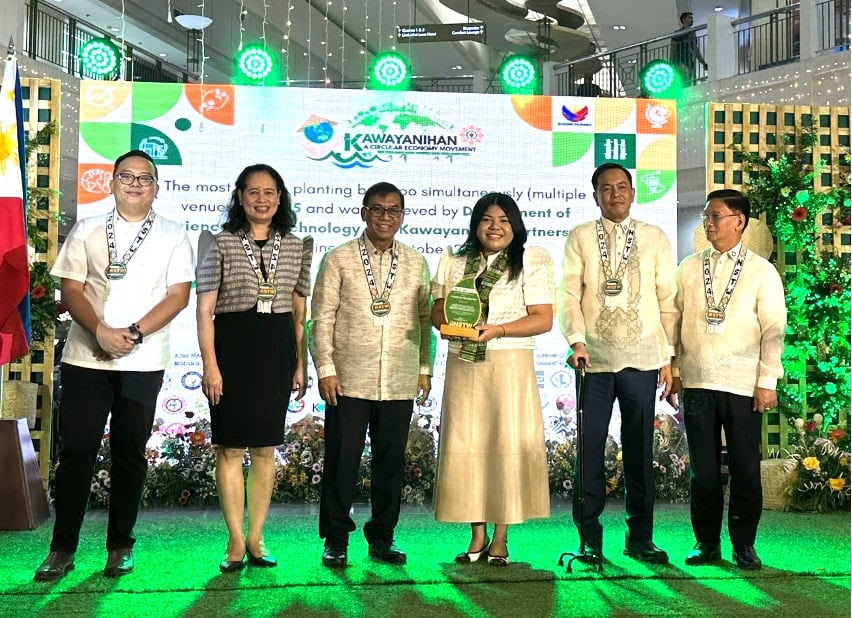
Kilambay Plantation Corporation (KPC) led by COO Rochella “Ella” Taliño-Taray (4th from left) together with other company executives after receiving a plaque of recognition from the DOST during the celebration of NSTW 2024 at Limketkai Center, Cagayan de Oro City
The record-breaking event saw 2,305 participants from various locations in Mindanao planting bamboo seedlings in a synchronized effort.
This initiative, dubbed the “KAWAYANIHAN Circular Economy Movement,” underscores the power of public-private partnerships in addressing environmental issues while promoting sustainable economic growth.
Kilambay Plantation’s vision for a greener future
Kilambay Plantation, the largest bamboo plantation in the region, played a pivotal role in this historic achievement.
Rochella “Ella” Taliño-Taray, Chief Operating Officer (COO) of Kilambay Plantation Corp., expressed her pride in the initiative, stating, “This is more than setting a record — it is a unified statement of hope for future generations. While there is still much to be done in addressing climate change, this movement is a significant step toward a greener, more resilient future.”
Kilambay Plantation also demonstrated its commitment to community empowerment by employing over 400 indigenous workers for its giant bamboo project. Beyond immediate employment, the corporation is laying the groundwork for a sustainable local economy by planning a bamboo processing facility in Carmen, Cotabato.
This plant will transform bamboo into raw materials for industries like construction, furniture, and textiles, aligning with the global demand for sustainable resources.
Bamboo: Nature’s answer to climate change
Bamboo, often referred to as “green gold,” is a versatile, eco-friendly resource that grows rapidly and absorbs large amounts of carbon dioxide, making it a crucial ally in combating climate change.
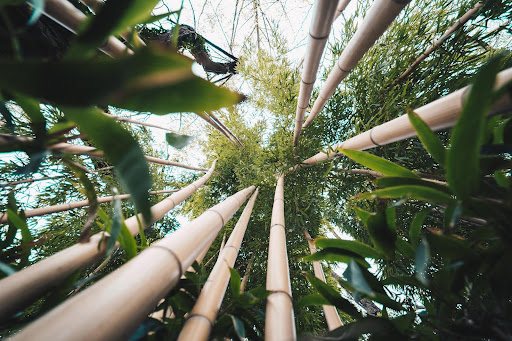
The KAWAYANIHAN initiative highlights bamboo’s potential as a cornerstone of the circular economy, promoting sustainable practices across industries.
KPC CEO Jerry John Taray emphasized the movement’s broader implications, saying, “We hope this inspires more people to join in planting bamboo. It is not just a solution for climate change but also a means to provide sustainable livelihoods for indigenous communities.”
Collaboration across sectors
The large-scale event has brought together stakeholders from various sectors, including local government units, private corporations, and indigenous communities.
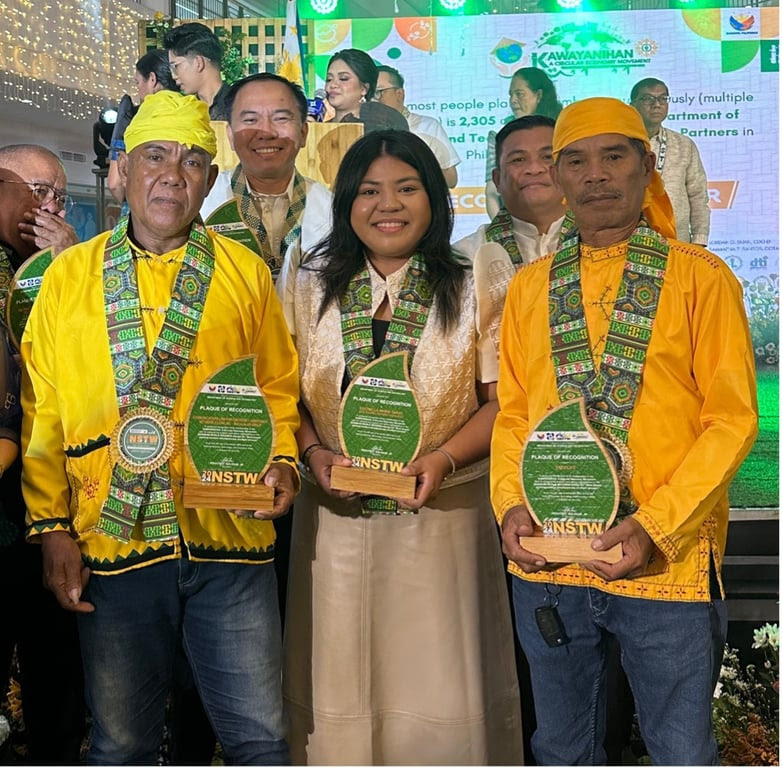
The Erumanen ne Menuvu tribe played a significant role in Carmen, Cotabato, where hundreds of volunteers gathered to plant and geotag bamboo seedlings.
Tribal leaders Timuey Alfredo Sacayan and Timuey Dahil Mampurok received plaques of recognition for their contributions during the NSTW celebration.
Other notable figures in attendance included DOST Secretary Renato Solidum, Jr., DOST Undersecretary Teodoro Gatchalian, and DOST Region XII Director Engr. Sammy Malawan, along with local government officials and representatives from the private sector.
Beyond the record: A movement for sustainability
The Guinness World Record attempt was part of DOST Region XII’s broader mission to reforest degraded lands and establish bamboo as a key resource in the circular economy.
In addition to mitigating climate change, the movement aims to generate economic opportunities through the cultivation and processing of bamboo.
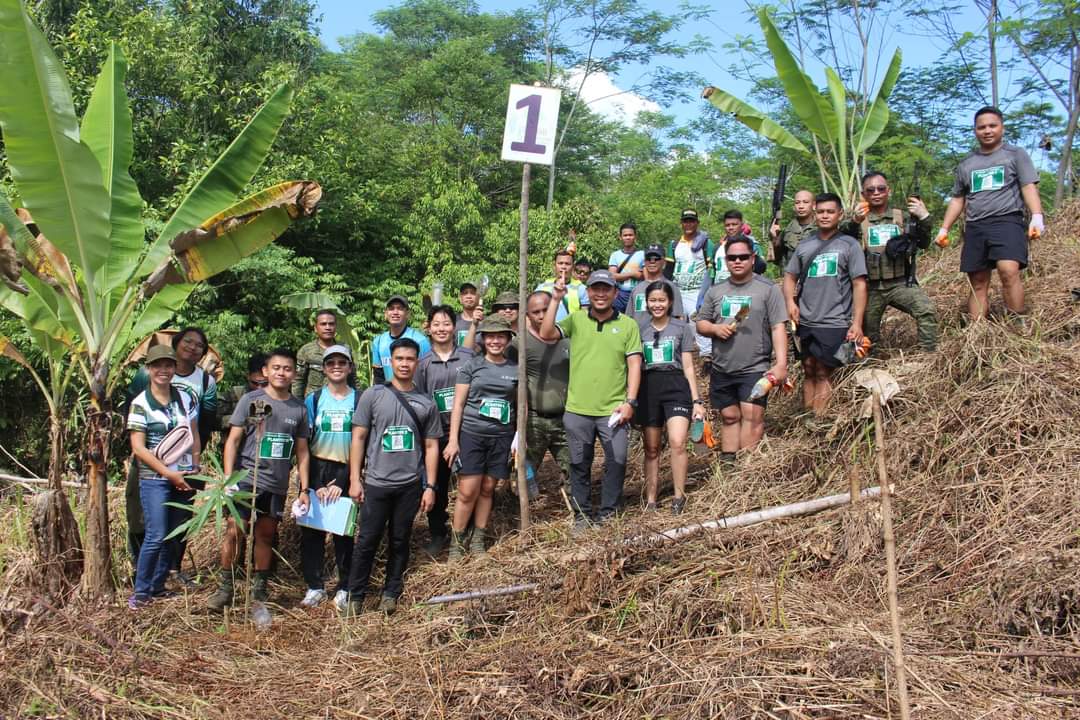
The simultaneous planting activities spanned 20 locations across Mindanao and parts of Visayas, showcasing a collective effort to transform degraded lands into productive ecosystems. Aerial footage captured the scale of the initiative, with volunteers working in harmony to plant thousands of bamboo seedlings.
As the Philippines celebrates this Guinness World Record, the true success of the KAWAYANIHAN initiative lies in its long-term impact. By fostering sustainable practices and promoting bamboo as a viable economic resource, this movement has laid the foundation for a greener, more resilient future.
With Kilambay Plantation Corporation at the forefront of these efforts, the bamboo industry in Mindanao is poised to become a significant contributor to both environmental preservation and economic growth.
As COO Rochella Taliño-Taray aptly concluded, “Step by step, we are building a future that the next generation can enjoy. Together, we can achieve a sustainable and resilient Philippines.”


